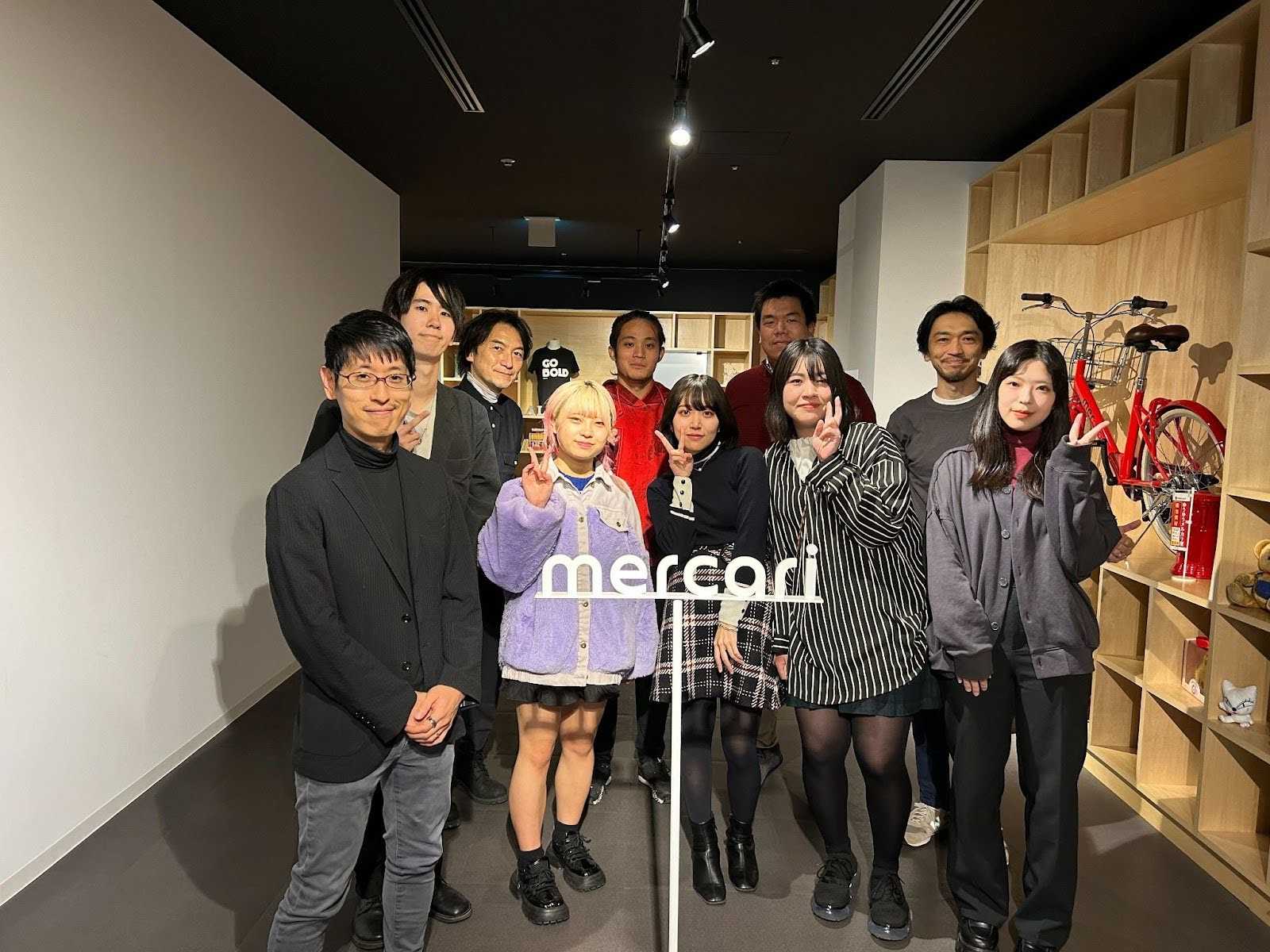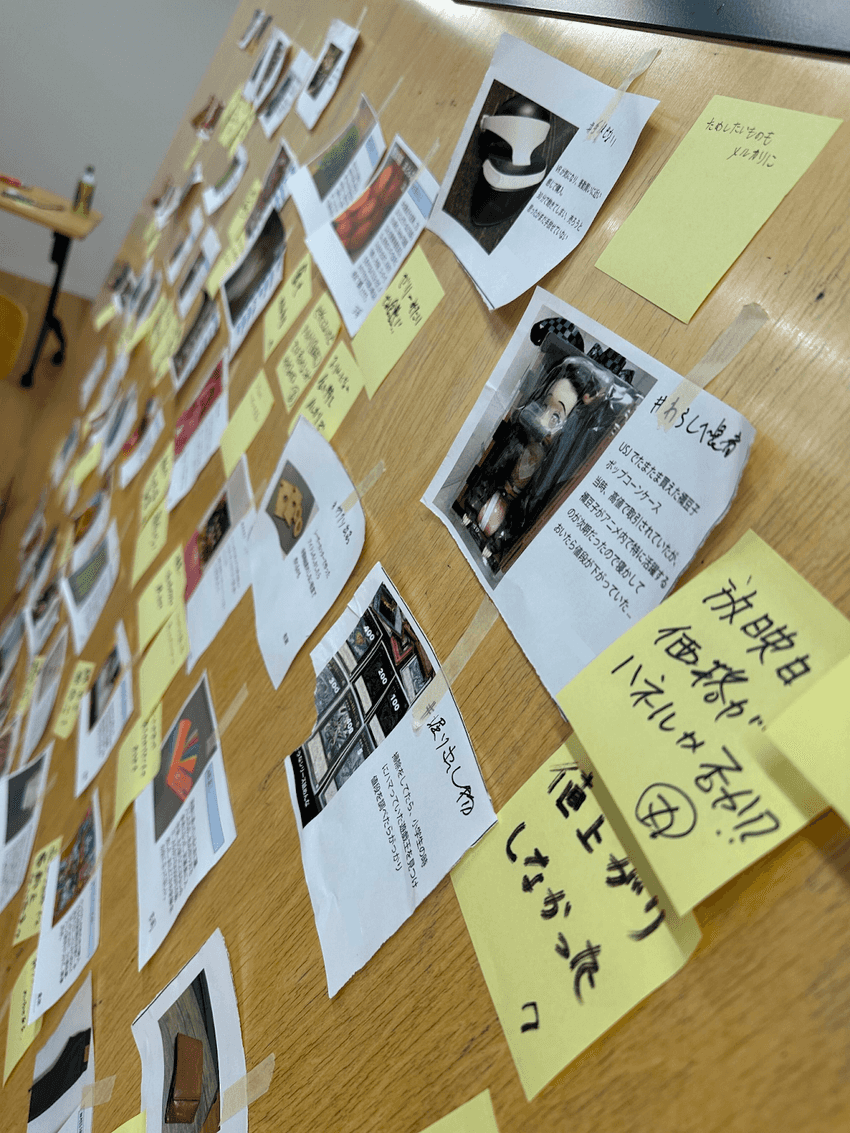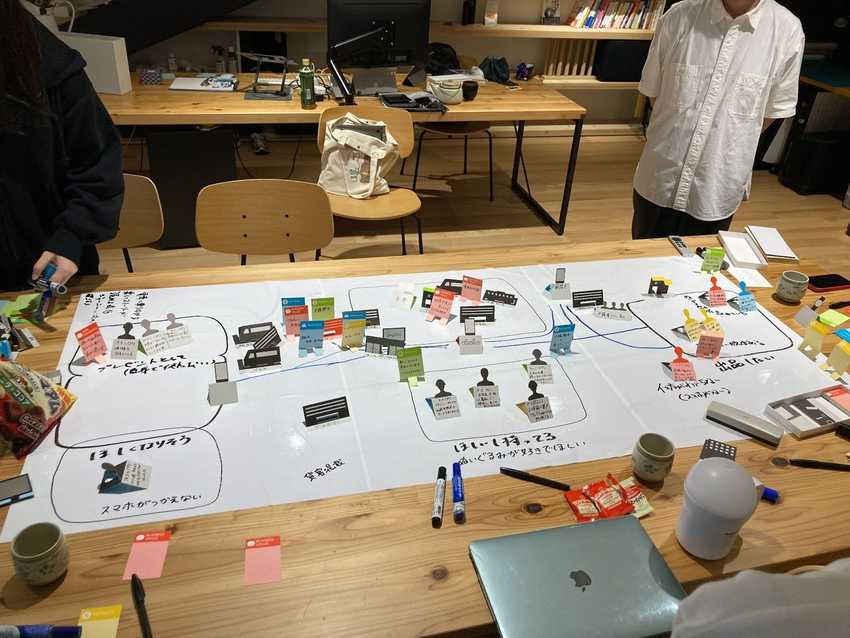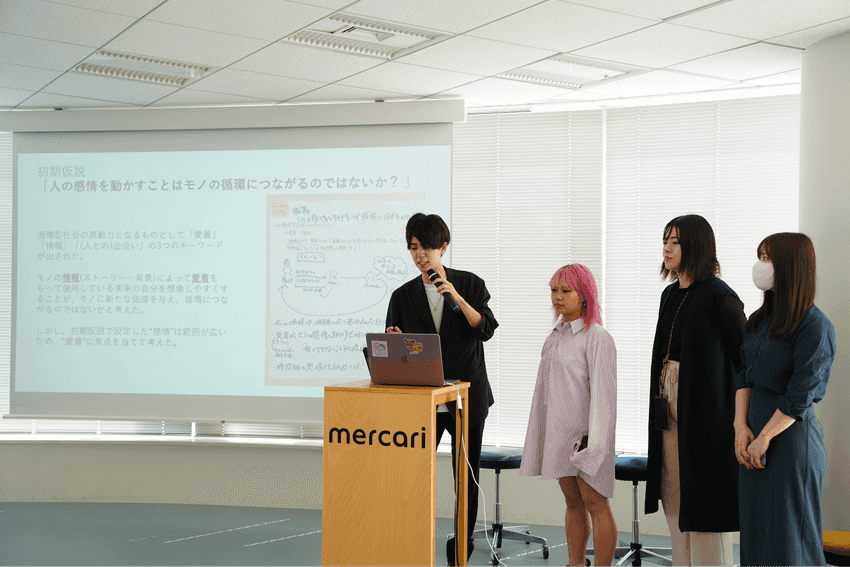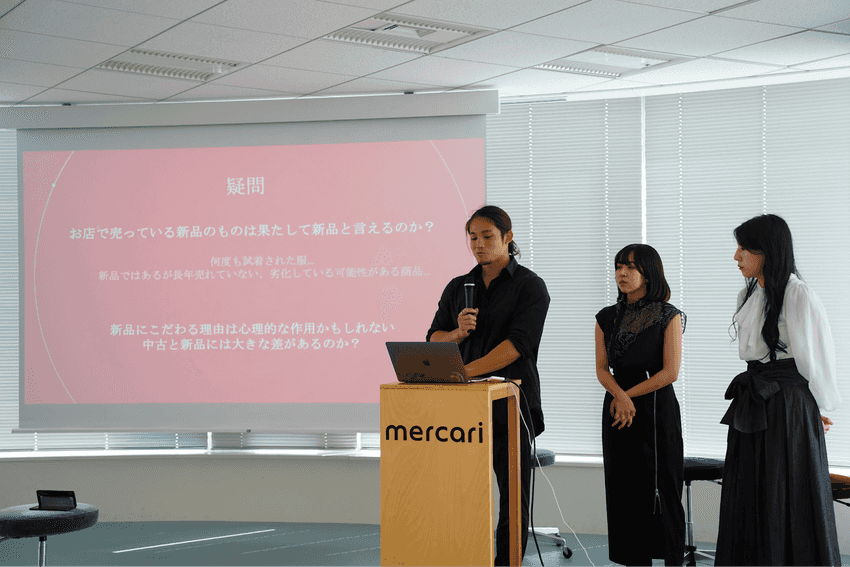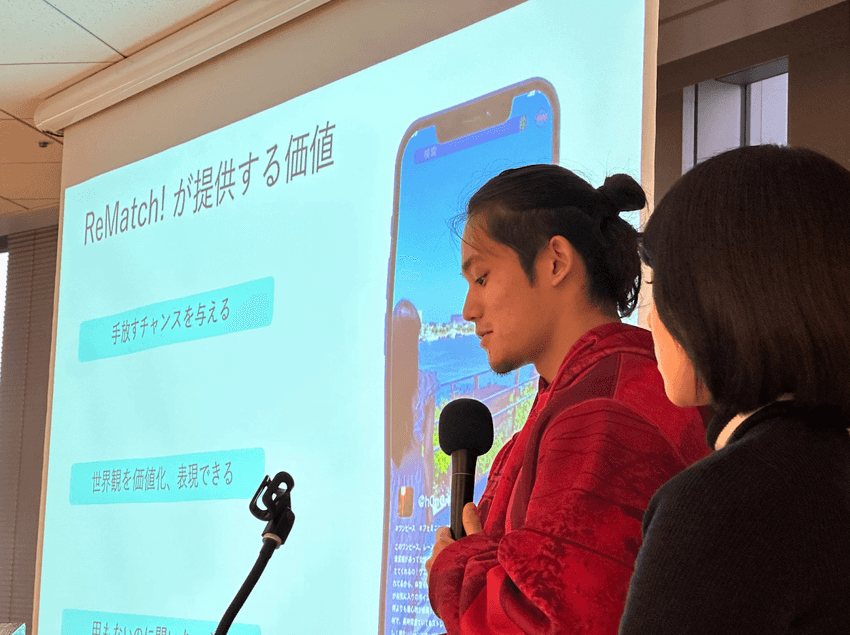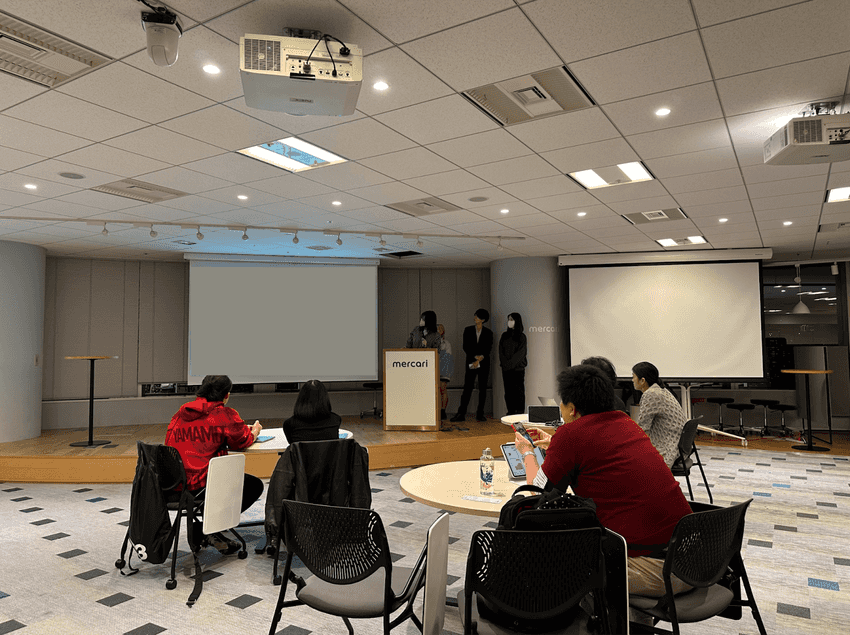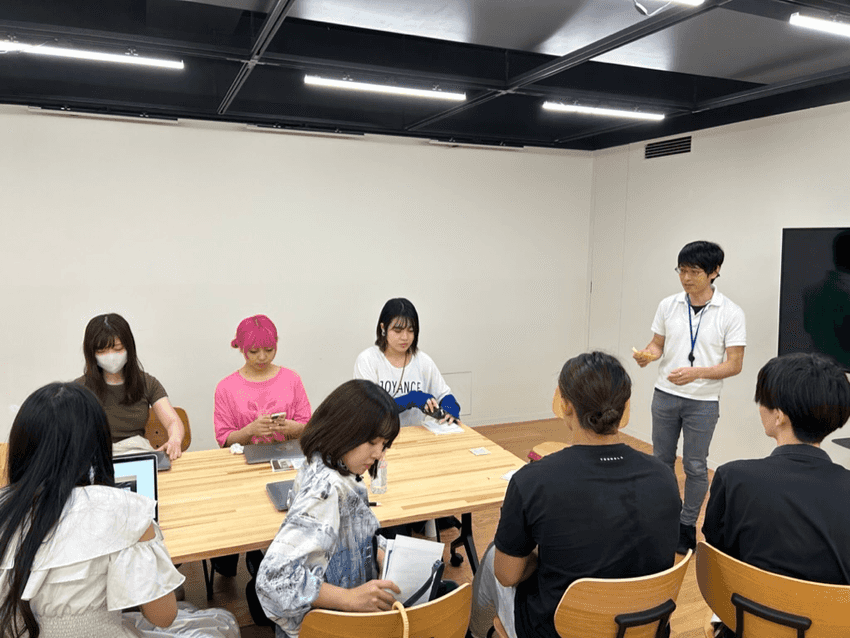Brainstorming new ideas for the creation of a circular economy
Hi there! Mercari R4D researcher and Merpay UX researcher Koki Kusano (@keiny) here.
In this article, I’d like to share some of the work Mercari R4D has done to create an event for design and learning with Musashino Art University’s Creative Innovation Department, a part of the Institute of Innovation. Under the guidance of Prof. Yukinobu Maruyama, a faculty member of the Creative Innovation Department, we collaborated with students of Musashino Art University to brainstorm ideas for new services for the creation of a circular economy that leverages the Mercari marketplace.
Reference: Press release (available only in Japanese)
Reference: Mercari: Creating a Circular Economy/Mitigating Climate Change
One of the goals of this joint lecture workshop was to teach students how design is used in business through working alongside professionals doing design and research in the industry. We also aimed to gain fresh insights from the students by contemplating our service with them and by exploring this method of design.
What we worked on
At the lecture workshop, participants researched design with a focus on transactions between individuals using products like the Mercari marketplace app. The students shared their experiences and brainstormed ideas while contemplating questions like, “Can we really distinguish between new and used items?” “How can we make listing items on Mercari a common practice?” and “Why do people hold onto things that they never use?”
Beyond simply coming up with ideas, participants also quickly created prototypes themselves.
▼Photographs from the lecture workshop
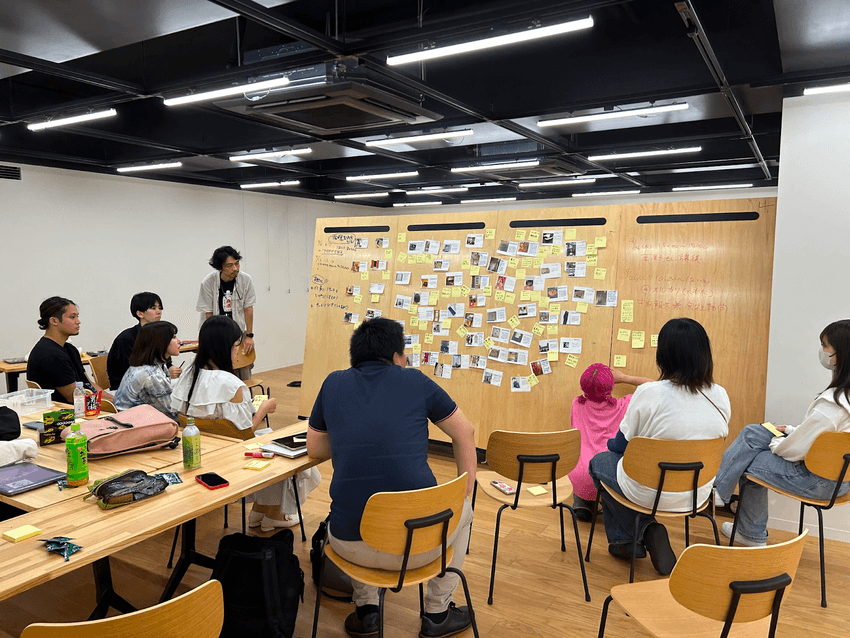
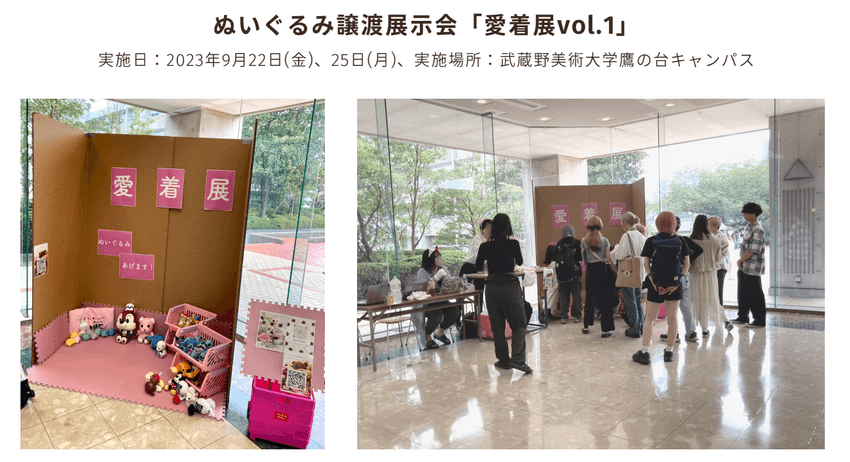 Excerpt from the final report drafted by students of Musashino Art University
Excerpt from the final report drafted by students of Musashino Art University
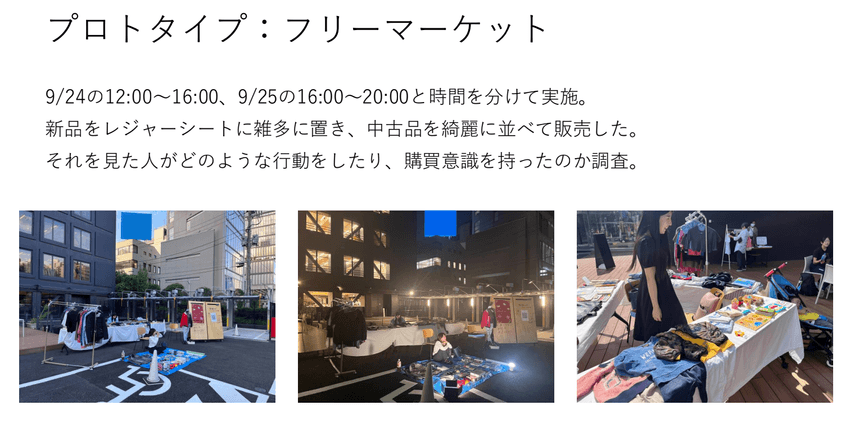 Excerpt from the final report drafted by students of Musashino Art University
Excerpt from the final report drafted by students of Musashino Art University
For the project, students participated in two report sessions held at Mercari’s office. The students then received constructive criticism and took questions from design and research experts, which allowed them to build a good measure of experience.
The solutions that were designed based on the experiences and perspectives of the students also afforded Mercari’s designers and researchers a wealth of fresh, never-before-seen insights. While there are no guarantees that their ideas will be implemented at Mercari, the perspectives that informed the students’ ideas and unique forms of problem resolution gave Mercari’s members substantial clues to consider when contemplating new designs.
In addition, the results of a survey given to the students suggested that their awareness of a circular economy had changed through their participation in the lecture workshop. While it is still necessary to look at the results more closely, the fact that designers and researchers were able to see changes in the students’ way of thinking through the design process was very interesting and gave them something to think about regarding the direction of their future research.
What Mercari R4D will work on going forward
To create a circular economy going forward, Mercari R4D plans to refer to the results of this joint lecture workshop as we conduct further research into methods of “co-design” between companies and stakeholders, such as students. In this way, we would like to create a world in which users do not simply use the services companies create but can use services that continuously improve and evolve with them.
To achieve this, we believe it is important to base our designs on the everyday experiences of our stakeholders and to prepare the tools, guidelines, and environments needed to test our ideas, regardless of how small the change is that we would like to implement.
Reference: https://r4d.mercari.com/en/servicedesign/
Conclusions
This lecture workshop was both a forum for the students to learn and a venue for Mercari to gain valuable clues for improvements based on the students’ unique perspectives. We are truly grateful for the cooperation we had from everyone including Prof. Maruyama, the teaching assistants, and all of the students who took part. Thank you!
We extend a warm invitation to anyone who is practicing or looking into co-design, or is interested in participating in the design process to join our workshops so that we can all design services that contribute to creating a circular economy.
